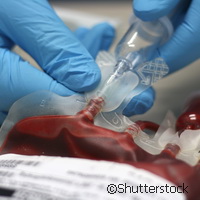Transforming surgeries by reducing blood loss
Having received approval for sale in Europe and Canada, HemoSep is set to revolutionise the healthcare sector. HemoSep is a revolutionary surgical blood salvage technology which was developed at the University of Strathclyde, Glasgow in the United Kingdom. Its developers believe that it has the potential to radically transform the way major surgery is carried out by reducing blood loss in patients. The device essentially captures blood spilled during a patient's surgery and then transfuses it back to the patient. While similar devices exist, HemoSep differs in that it was designed to be extremely compact, widening its usage to trauma situations. Blood donation and blood stocks are a global concern. According to statistics from the World Health Organization (WHO), 90 % of people who are eligible to donate blood do not, and many are not aware that blood donations have a short shelf-life, making regular donations essential in order to secure a constant supply; it is roughly estimated that 2.0-2.5 % of the population must give blood regularly. In the WHO European region, 14 countries are below this threshold, 8 of which are Newly Independent States. Statistics like these highlight the importance of developing new technologies like HemoSep. The process utilised by the device is known as autotransfusion. What this does is reduce the volume of donor blood required as well as the problems associated with transfusion reaction. Professor Terry Gourlay led the development of the technology at the University's Department of Biomedical Engineering, and commented: 'This is a fantastic example of real collaboration between the University of Strathclyde and the medical device industry to take this device from concept to clinical delivery. The introduction of HemoSep to the medical device field will make a significant difference to people's lives and greatly reduce the cost and risks associated with blood transfusions. The technology has distinct advantages over traditional techniques which are not only costly but technically challenging and involve the use of a complex centrifuge and pumping apparatus by specialist technicians. 'We expect further developments in the form of a derivative of this technology for use in children undergoing open-heart surgery where the challenges of blood conservation are even more critical.' Clinical trials were conducted at the University of Kirikkale University Hospital in Ankara, Turkey and the device was used in over 100 open-heart surgery operations. The researchers saw that the HemoSep device significantly reduced the need for blood transfusions, together with preservation of normal clotting mechanisms and a reduction in the inflammatory reaction often encountered after such surgical procedures. The device consists of a blood bag which employs a chemical sponge technology and a mechanical agitator to concentrate blood sucked from the surgical site or drained from the heart-lung machine after the surgery. The separated cells are then returned to the patient by intravenous transfusion. Professor Serdar Gunaydin, Head of Cardiac Surgery at the University of Kirikkale where the trials were conducted, said: 'The technology is a real step forward in the field of autotransfusion for cardiac surgery, being highly effective, easy to use and associated with a reduction in the need for donor transfusion and blood loss in these patients. In the climate of national blood product shortages and concern for disease transmission and immunosuppression, every effort should be made to optimise blood recovery and reduce allogeneic blood usage. 'The HemoSep technology has produced impressive results, it is the easiest method we have ever used. There is no interference with the ongoing operation and product is ready to use following a very short processing time. It quickly and safely recovers substantial proteins, clotting factors and cell concentrates for all types of cardiac procedures. 'We believe this new technology will be one of the essential components of the routine heart surgery in the near future. We even think this technique may be useful for blood preservation during transplantation, orthopaedics and neurosurgery.' Professors Gourlay and Gunaydin will present the results of the recent clinical trials at the European Society for Artificial Organs (ESAO) congress in Rostock, Germany in September.For more information, please visit: University of Strathclydehttp://www.strath.ac.uk/ WHO - World Blood Donor Dayhttp://www.who.int/worldblooddonorday/en/
Countries
Türkiye, United Kingdom



